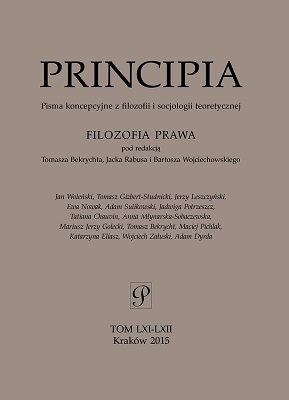Critical Remarks on Alf Ross’s Probabilistic Concept of Validity
Critical Remarks on Alf Ross’s Probabilistic Concept of Validity
Author(s): Katarzyna Eliasz, Wojciech ZałuskiSubject(s): Law, Constitution, Jurisprudence, Philosophy of Law, Behaviorism, Hermeneutics
Published by: Wydawnictwo Uniwersytetu Jagiellońskiego
Keywords: validity; probability; prediction; normative ideology;
Summary/Abstract: The concept of legal validity is regarded within the dominant legal-positivistic account of law as a non-gradable concept: a legal rule is either valid or non-valid. However, this account of validity is criticised by some scholars for being too strict and rigid. An attractive alternative would appear to be offered by Alf Ross’s account of validity as a probabilistic concept. Ross assumed that the stronger the predictions of judicial behaviour that a given rule generates, the higher the probability that can be assigned to its validity. However, this account of legal validity is by no means uncontroversial. In this paper, four objections against it are formulated: apparent gradability, problematic ascertainability, the normative insignificance of probabilistic information and the neglecting of the normativity of legal rules. These objections are treated in this paper as strong grounds for rejecting Ross’s claim that predictions of judicial behaviour formulated on the basis of rules are conceptually linked to their validity (i.e. they define their meaning); it is argued in the paper that they are merely a way of testing empirical hypotheses concerning the application (effectiveness) of legal rules.
Journal: PRINCIPIA
- Issue Year: 2015
- Issue No: 61-62
- Page Range: 225-237
- Page Count: 13
- Language: English

